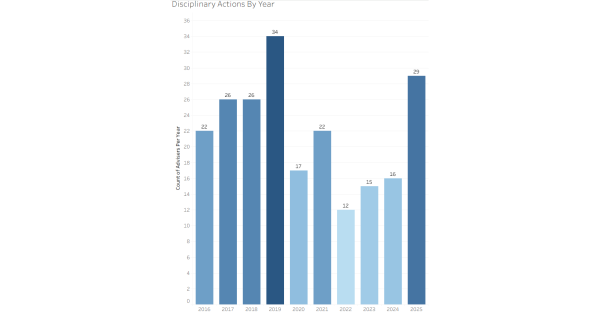ANZ cops sanction for charging fees to deceased

Australia and New Zealand Banking Group (ANZ) has become the second big four bank within a week to be formally sanctioned by the Banking Code Compliance Committee (BCCC).
The Committee alleges that ANZ Bank breached its Banking Code obligations by failing to stop or refund fees charged to deceased estates after customers’ deaths.
The BCCC contends that ANZ further breached its obligations by not responding to instructions or requests for information from representatives of deceased estates within the required 14-day timeframe.
The breaches of 190(a-c) and 191(a) of the 2019 Banking Code of Practice [pdf] spanned a more than four-year period between July 2019 and September 2023. The BCCC further noted that ANZ could, however, not accurately quantify the number of times it had breached the relevant Code obligations.
ANZ has indicated that it would remediate upwards of $3.25 million to the nearly 19,000 affected estates to correct instances where it had charged fees and interest.
The BCCC’s reprimand of ANZ comes less than a week after it sanctioned fellow ‘big four’ Westpac for its mishandling of a regional branch closure.
A second unnamed bank was also cited by the BCCC in its sanctioning of ANZ for its failure to stop or refund certain fees charged to deceased estates after customers’ deaths.
In that case, however, the action was limited to a formal warning, with the BCCC factoring into consideration “the lower financial impact, the smaller number of affected estates and the swiftness with which the bank acted”.
The BCCC justified its sanction (its strongest enforcement action involving the naming of the institution and publishing of its non-compliance activities) of ANZ based on several factors:
- ANZ’s inability to accurately quantify breaches of the Code’s 14-day obligations, which the BCCC said “raises serious concerns about its ability to effectively monitor and comply with these obligations”.
- ANZ delayed response in preventing further breaches and reducing customer detriment. “Non-technical fixes, such as updated internal templates, knowledge articles and staff training, were implemented eight to 14 months after the September 2022 audit and only after we commenced our investigation,” the BCCC wrote.
- ANZ’s delay in remediation. “Despite first identifying the backlog of cases in February 2022, customer remediation will be completed in July 2024, more than two years later.”
- ANZ’s delays in responding to estate representatives’ requests may, the BCCC, have “exacerbated the stress and time spent managing the estate of a friend or family member. In our view, ANZ could have done better to support its bereaved customers and representatives during a difficult time.”
In June 2023, more than a year after identifying the problem, the BCCC noted that the bank had deployed a new automated tool to now waive fees after ANZ receives a notification of the death of a customer.
Delays in response
The BCCC noted that, despite first identifying the issues in early 2022 (re-confirmed in an internal audit in September), ANZ took over a year to implement solutions followed by another two-year gap before commencing its customer remediation program.
This remediation program – still ongoing – is expected to be finalised only by the end of July 2024.
The BCCC also noted a backlog of more than 7,000 delayed cases (identified by ANZ in early 2022), with the bank signalling that it would need to manually review each case to identify those that breached the Code’s 14-day obligations.
“As individual manual reviews were impractical, ANZ adopted a proxy measure of potential breaches by identifying deceased estate cases that were awaiting action for longer than 90 days,” the BCCC said.
ANZ will send approximately 10,604 apology letters to representatives of these estates affected by potential delays. For up to 1,421 of these cases, ANZ will pay financial compensation of around $667,915.
BCCC chair Ian Govey scolded ANZ for its Code breaches, saying the “significance of the deficiencies… was deeply concerning”.
“[ANZ’s] non-compliance warranted such a sanction,” which he said is reserved only for “the most serious and systemic breaches”.
Govey flagged concerns with ANZ’s remediation process, concluding they “did not meet expectations”.
“Once aware of the issues, ANZ did not act with sufficient urgency to remediate the affected customers. It should have done more to address this more quickly,” Govey said.
However, the BCCC acknowledged that ANZ’s remediation included the use of assumptions beneficial to customers, including reimbursing charges that may already have been refunded.
The sanction of ANZ comes off the back of the BCCC’s inquiry from 2023 which examined banks’ compliance with obligations for deceased estates in the Banking Code of Practice.
The BCCC was established as a condition of the 2019 Banking Code to monitor and enforce best practice of Code compliance.
Financial services regulator ASIC last week approved an update to the Banking Code, with several changes to the deceased estates clauses (including more detailed steps on securing accounts, removing login credentials and restricting debit transactions.
The updated Code [pdf] comes into force after 28 February 2025.











What moron thinks death stops financial activity ?
It’s creates a lot more work and fees should be charged.
I guess the ATO won’t want final tax returns for the deceased part fin year, or an estate tax return, or any of the taxes owed including Super Death benefit tax.
What about super funds, especially union funds. They still collect their admin and investment fees when a client dies. Normally this isn’t a problem, but when they take over six months, sometimes longer, to settle a death claim, one has to ask why aren’t they held to the same standard as others?
I know how unfortunate it is that many people fall victim to a wide range of fraudulent activity online, resulting in significant losses, some of which can have life-changing consequences. I suffered a loss of approximately $170,000. I was totally devastated and confused. But thank God for my colleague who introduced me to a legit, certified and verified money/digital asset recovery company that helped me recover all my lost funds. Their services were prompt and truthful. Are you finding yourself in the middle of losing funds/crypto and other digital assets online? Don’t worry anymore, you can contact her via
Email: doris_ashley_71 (@)_ gmail_ com
WhatsApp: +1—(404)–721—56–08